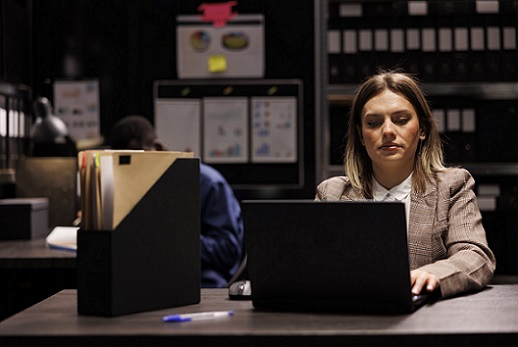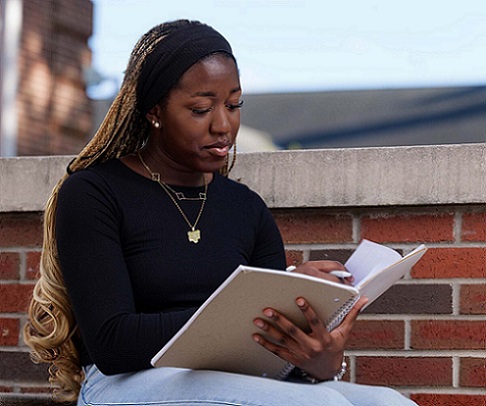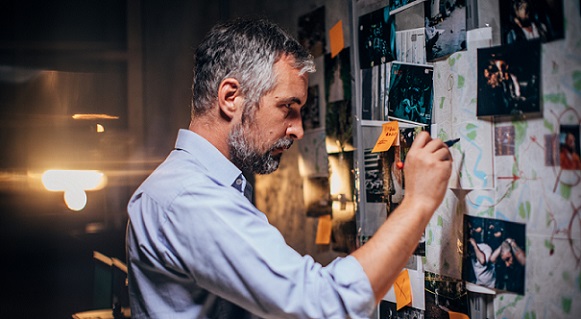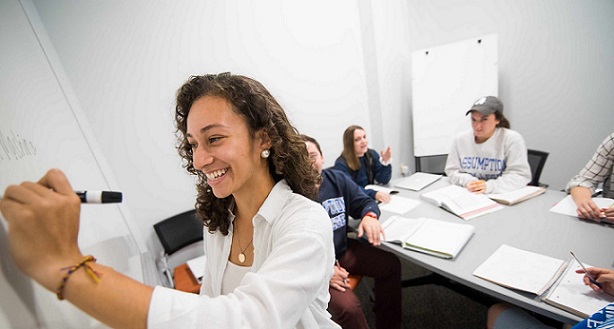Criminology
The Foundations of Criminology: From Theory to Practice in Criminal Justice
Defining Criminology: Origins, Theories, and Contemporary Applications

Criminology is the scientific study of crime, criminal behavior, the causes of crime, the social response to crime, and the effectiveness of crime prevention and punishment strategies.
It is an interdisciplinary field that draws from sociology, psychology, law, political science, economics, biology, and even geography to understand why crime occurs and how society can respond to it effectively.
In simple terms: Criminology asks — Why do people commit crimes? Who commits them? Where and when do they occur? And how can we prevent or reduce them?
Scope and Key Areas of Study
Criminology isn’t just about studying criminals — it’s a broad field that includes:
1. The Nature and Extent of Crime
- Measuring crime through official statistics (e.g., FBI’s Uniform Crime Reports, UCR), victimization surveys (e.g., National Crime Victimization Survey, NCVS), and self-report studies.
- Identifying trends: Is violent crime increasing? Are property crimes declining?
Example: A criminologist might analyze whether smartphone thefts have decreased since “kill switch” features became mandatory on new phones.
2. Causes of Crime (Etiology)
This is the core of criminological theory — trying to explain why people commit crimes.
Major Theoretical Perspectives:
- Biological Theories: Suggest genetic or neurological factors may predispose individuals to criminal behavior.
Example: Studies linking low levels of serotonin or frontal lobe damage to impulsive aggression.
- Psychological Theories: Focus on personality, mental disorders, or childhood trauma.
Example: Research showing that antisocial personality disorder correlates with repeat offending.
- Sociological Theories: Argue that social environment, inequality, peer groups, and institutions shape criminal behavior.
- Strain Theory (Robert Merton): People turn to crime when they can’t achieve socially approved goals (like wealth) through legal means.
- Social Learning Theory (Albert Bandura/Sutherland): Criminal behavior is learned through association.
- Labeling Theory: Being labeled a “criminal” can push someone into further criminal identity.
- Broken Windows Theory: Visible signs of disorder (graffiti, broken windows) encourage more serious crime.
Example: A neighborhood with high unemployment and poor schools might see higher juvenile delinquency rates, supporting strain or social disorganization theories.

3. Criminal Justice System Response
Criminologists study how police, courts, and corrections respond to crime — and whether those responses are effective, fair, or discriminatory.
Example: Research might show that mandatory minimum sentencing doesn’t reduce drug crime but leads to prison overcrowding and racial disparities.
4. Victimology
The study of victims — who gets victimized, why, and how the system treats them.
Example: Studies reveal that domestic violence victims often face barriers to reporting due to fear, economic dependence, or distrust of police.
5. Crime Prevention and Control
Developing and evaluating policies and programs to reduce crime.
Examples:
- Community policing initiatives to build trust between officers and neighborhoods.
- CCTV surveillance in public spaces to deter theft.
- Rehabilitation programs like cognitive behavioral therapy for offenders to reduce recidivism.
6. Comparative and International Criminology
Studying crime across cultures and countries to understand global patterns.
Example: Comparing homicide rates in the U.S. vs. Japan to explore how gun laws, cultural norms, and policing affect outcomes.

Real-World Applications of Criminology
Criminologists work in many settings:
- Government agencies (FBI, DOJ, local police departments)
- Research institutes (RAND Corporation, Urban Institute)
- Universities (teaching and conducting research)
- Nonprofits and advocacy groups (working on criminal justice reform)
- Corrections and probation departments
Example: A criminologist might be hired by a city to evaluate whether a youth diversion program reduces future arrests — then recommend whether to expand or scrap it based on data.
Famous Criminologists & Landmark Studies
- Cesare Lombroso (1800s): Proposed “born criminal” theory based on physical traits — now largely discredited, but sparked early scientific interest.
- Edwin Sutherland: Developed “Differential Association Theory” — crime is learned through close personal groups.
- Travis Hirschi: Social Bond Theory — weak ties to family, school, or community increase likelihood of crime.
- Michelle Alexander: Modern scholar examining mass incarceration and systemic racism in The New Jim Crow.

Why Criminology Matters
Understanding crime scientifically helps societies:
- Design better laws and policies
- Allocate resources efficiently (e.g., where to deploy police)
- Reduce harm to victims and communities
- Promote rehabilitation over pure punishment
- Address root causes (poverty, education, mental health)
Example: After criminological research showed that Scared Straight programs increased offending, many jurisdictions stopped funding them — saving money and preventing harm.

Understanding Criminology: The Multidisciplinary Science of Crime and Justice
Criminology is the scientific study of crime, its causes, consequences, and how society responds to it. It draws from multiple disciplines including sociology, psychology, law, economics, biology, and political science to build a comprehensive understanding of criminal behavior.
Researchers in criminology seek to answer fundamental questions such as: Why does crime happen? Who is most likely to commit it? And crucially, how can we prevent or reduce it?
To investigate these questions, criminologists use a variety of research methods, including surveys, controlled experiments, statistical analysis, in-depth case studies, and ethnographic fieldwork.
The insights gained from criminological research are applied in real-world settings to shape public policy, improve law enforcement strategies, reform correctional systems, and enhance support services for victims of crime.
Final Thought
Criminology is not about glorifying crime or criminals, it’s about understanding complex human and social behavior to create safer, fairer, and more just societies. Whether analyzing gang culture in Los Angeles or evaluating restorative justice in New Zealand, criminologists seek evidence-based solutions to one of humanity’s oldest problems: crime.

What is Criminology?
Criminology: When people look into criminology, they may initially be surprised by how expansive the field is. Anyone that is at all associated with the scientific study of crime, the relationship between the criminal and his or her environment, and society’s reaction to crime would have some sort of placement within the scene of Criminology. In some instances, criminologists are researchers that are trying to find the common links between deviant behavior and the environment, in order to try to pinpoint what it is that causes or perpetuates crime. There are currently a number of different theories that attempt to explain, through the process of science, what it is that causes a crime to take place.
Criminology - Science
These theories began to emerge in earnest in the middle of the 1800’s. Over the course of the next 200 or so years, new theories began to spring up and eventually they began to involve genetics, hormones and biological makeup. Previously, theories of criminology rested heavily on society and the environment’s effect on the individual as a source to either push an individual into crime or away from crime. There are three distinct schools of thought when it comes to criminology.
One of the first schools of thought, the Classical school believes that utilitarian philosophy is the supporting notion of criminology. They argue that individuals have free will and can decide for themselves what is right and what is wrong. The hedonistic, or self-indulgent, side of the body must be balanced against the rational of the individual. When the hedonistic side wins, crime may ensue.
Rational is the side of the individual that would consider the penalty of the crime and, if the punishment is severe enough, is believed to be the piece of the individual that would keep them from crime by looking at the costs. Positivists are those who believe that the factors that contribute to the criminal’s propensity to go against the law do not rest within their own control. Rather, elements such as society or the person’s chemical makeup do. These are things that are considered to be outside the control of the individual, but are still things that may play what Positivists claim as the biggest part of the responsibility when a criminal has committed a crime.
Criminology - Justice Studies
In the Chicago school of thought, individuals believe that criminals are a result of the disorganized environments from which they come. Later, this definition was extended to include the belief that older generations taught younger generations about the role of crime. It is then fair to say that these individuals believe that crime is a social occurrence only where the social makeup of the area is broken down and unequal.
Crime is often considered to be a blemish when it comes to the society of an area. It causes people to fear when they should not have to. Criminologists are, in their own way, attempting to determine what causes a crime or instigates that type of behavior in a person in order to limit the amount of crime that takes place.
Browse All Our Informative Topics
InternetBusinessIdeas-Viralmarketing Home Page
We Are Helping 1000 Businesses Amplify Their Online Presence
Tweet
Follow @Charlesfrize











New! Comments
Have your say about what you just read! Leave a comment in the box below.